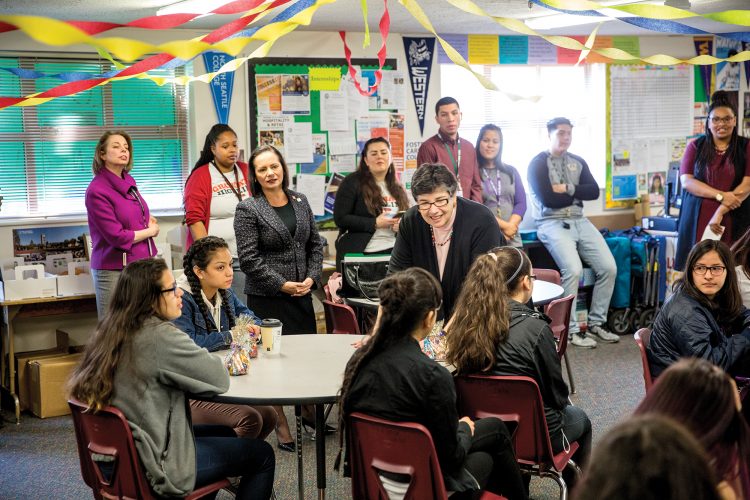President’s letter: June 2018
The great power of our University and its public mission is that it touches every person in Washington, through education, research and service.

Education transformed my life. And as an educator, I’ve seen it transform more lives than I can count. For students, that transformation occurs inside and outside the classroom, but the benefits that flow from learning and discovery reach far beyond our campuses. The great power of our University and its public mission is that it touches every person in Washington, through education, research and service—addressing health and social ills, and increasing the common good.
That is the idea at the heart of the University of Washington’s public promise. It’s why I frequently describe the University of Washington as the University for Washington, and well beyond. The UW is for people everywhere who benefit from access to better medicine, smarter technology, cleaner energy, more vibrant arts and culture, a more educated workforce, and innovation and discovery of every kind.
This commitment to our mission translates into impact for people across the state and world in so many ways. Our Husky Promise now ensures that 10,000 highly capable, low-income Washingtonians are attending the UW tuition-free. We provide $417 million in uncompensated care through our hospitals and clinics. Our students donate 495,152 volunteer hours to individuals and nonprofits across the state. The research in our College of the Environment helps to keep Puget Sound clean and to predict landslides and earthquakes that could devastate our region. And the graduates we produce for area businesses large and small help make our state’s economy one of the most vibrant in the world.
Universities are today’s modern “river confluences,” serving as magnets for talent and producing prosperity for the region. So it’s perplexing—and deeply concerning—that the vast public good created by higher education is now under attack, with misperceptions about the real costs and benefits of a college degree taking root in the popular imagination.
I don’t mean that higher education should be immune to scrutiny. Higher education must take seriously its obligation to look at the world our students will enter and ensure they’re being prepared for an economy and job market that is global, high-tech and very fluid. We must work more closely with state, county and city government so that our research can better inform their decision-making. And we must work to make the boundaries of the UW more porous—whether by inviting our community to stroll the new path in the Arboretum that is jointly managed with the city of Seattle, tour the Burke Museum or Henry Art Gallery, attend a sporting event or listen to one of the countless lectures on campus on everything from the art of the Renaissance to gravitational wave astronomy.
For generations, the value of college was so widely accepted that it barely needed to be articulated. A huge part of the American experiment has been the systematic expansion of access to higher education as a means of increasing equity—from the creation of the first land-grant colleges under the Morrill Act of 1862 to the GI Bill of 1944. But complacency became the enemy of progress, and as a community of people who know and cherish the value of higher education, we must champion this unparalleled tool for equity and prosperity.
As alumni, friends and supporters of the UW, you are those champ-ions, not only for this great public University, but for the values and
vision our University represents in Washington and beyond. You know the worth of college firsthand. You aspire to see your children and grandchildren earn their degrees and, through your gifts and support, you help make that aspiration a reality for other people’s children and grandchildren. With your generosity and your advocacy, you create a better future for all of us. That is an extraordinary gift. We are all deeply grateful.
